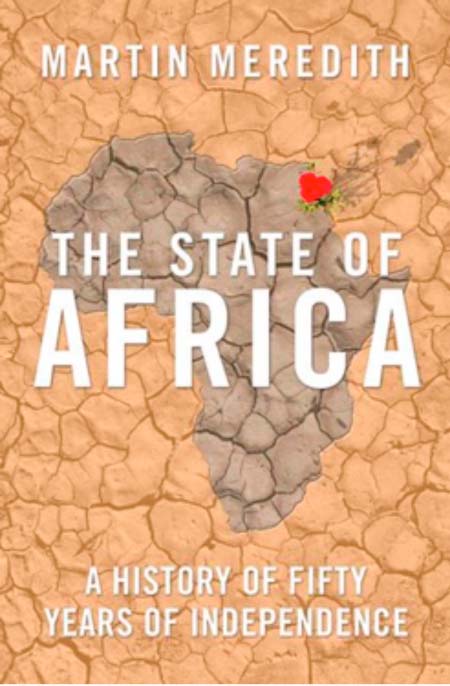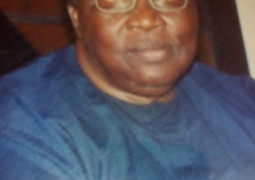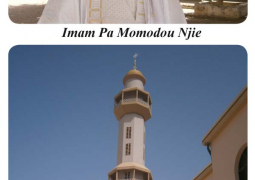
(Issue, Friday, 16 September 2016)
Martin
Meredith’s The State of Africa: A History of Fifty Years of Independence is an
unbiased chronological record of failed leadership in post-colonial
Africa. The book tracks the continent’s
journey from the euphoria of liberation in the 1950s and 1960s, through the
violent darkness of dictators and civil wars until the 1990s when the path to
true democracy and good governance began to be cleared. Meredith’s journey takes the reader from
Ghanaian independence and leader Kwame Nkrumah in the late 1950s to South
Africa and its second post-apartheid president Thabo Mbeki, and builds a
substantial body of evidence of mistakes and abuse which should provide all
Africans with examples of how not to lead.
At
the height of post-independence euphoria, Africa’s new leaders and their
cronies were looting their countries at an unprecedented rate. A 1964 study of 14 francophone African
countries showed that the cost of imported alcoholic beverages outweighed that
of fertilizer imports by a factor of six, and imports of luxury cosmetics and
perfumes cost twice as much as imports of machine tools. The ‘platinum life’ lived by so many of
Africa’s new elite in the 1960s came at the price of proper economic management
and the total neglect of the majority of Africans living in the newly
independent states.
By
the 1980s, for most African countries, per capita wealth was down to levels of
the 1960s; governments were reliant on loans from the IMF and World Bank to
finance their debts and feed their people and corruption was so entrenched that
deals were struck in the knowledge that amounts were to be budgeted for payoffs.
Nigeria
provides a unique example of tremendous potential prosperity, in the form of
vast oil reserves, squandered to the detriment of the people of Nigeria. Hundreds of billions of dollars of oil
revenues were channelled to corrupt politicians and businessmen instead of the
Nigerian people. In many cases, tribes
or populations have been forcefully removed to make way for pipelines and oil
rigs with no compensation for the loss of land or livelihood. The people of Ogoniland have, since the
discovery of oil in their area in 1957, been forced to abandon their land,
often without compensation, to make way for oil infrastructure. The violent backlash and kidnappings which
have taken place in the Niger Delta since 1992 are a direct result of
grassroots dissatisfaction with corruption and abuse at the hands of those in
control of Nigeria’s government.
Most
of Africa’s leaders were forcefully ousted from their positions as a result of
a groundswell of dissatisfaction with poor economic management, corruption, expedience,
nepotism, cronyism and violence.
Political opponents and military officers who inevitably assumed the
roles of ousted heads of state promised sweeping changes and economic
prosperity but seldom delivered on their promises before reverting to self
enrichment and political protectionism.
Meredith
skilfully weaves multiple, and often simultaneous, stories of failed states and
their corrupt leaders into a seamless and easy to read exposé devoid of
unnecessary airs and graces. This
mammoth digest serves not only as a clear and detailed record of the failure of
African states and their leaders but also as a resounding warning to Africa’s
new leaders to take care of their people.
Meredith also makes it clear to the reader that colonisers can be held accountable
for much of African countries’ ills: early abuse at the hands of colonisers and
their hasty exits upon liberation wrought havoc in many African states. Slavery, murder, rape, torture and other
human rights violations at the hand of colonisers served only to further
motivate liberationists to oust their colonial masters.
Whilst
colonisers and their poor treatment of Africans was clearly a contributor to
the state of the continent, the book shows also the fierce desire of African
nationalists to take power and implement their poorly conceived and untested
African socialist ideologies. The
influence of communist powers, most notably the Soviet Union, was central to
African socialism and communist support for dictatorial regimes may well be the
single most debilitating factor described in the book.
In
Africa today we need competent leaders with integrity and passion to deliver
economic growth and improve the quality of life of their people. Meredith shows us that not all of Africa’s
leaders were corrupt and greedy when they assumed their roles, but with the
notable exception of Botswana’s Seretse Khama, almost all were by the time
their rule was ended. Since
independence, Botswana has averaged over 9% economic growth per annum and
boasts one of the fastest growth rates in per capita income in the world. In a few other cases, leaders like Tanzania’s
Julius Nyerere, while well intentioned, were ideologically and economically
irresponsible and pursued expensive large-scale socialist projects which were
by and large failures, leaving their countries poorer and less developed than
they had been under colonial rule.
African
states and leaders have spent more than 50 years building a deserved reputation
for backwardness, greed and violence.
The African people all the meanwhile have suffered through wars, famine,
poor or nonexistent educational and health systems and little opportunity to
break out of their situations.
Closer
to home, we’ve frequently heard the fear that “South Africa is going the way of
Zimbabwe!” More accurately, one might
say “South Africa is going the way of Africa!” and Meredith’s book leaves no
uncertainty as to what the “way of Africa” was, but The State of Africa makes
it clear to the reader the overriding consensus that Africa is moving forward
and leaving its dark and treacherous history behind it.
South
Africa, regardless of the many problems we have to overcome, is unlikely to
trace the path of the many failed African independences which came before
it. The African tide is turning and the
stories of leadership and development emanating from this continent are
gradually changing for the better.
The
last decade has shown overwhelmingly that the voices of the African people are
being heard and leaders principally good and democratic are coming to the fore,
a significant deviation from the greater history of this continent. Leaders like Zambia’s Levi Mwanawasa,
Uganda’s Yoweri Museveni, Rwanda’s Paul Kagame, Mozambique’s Joaqium Chissano
and South’s Africa’s Nelson ‘Madiba’ Mandela have broken the mould of Africa’s
“big men” who preceded them. Their belief in democracy and economic growth as
drivers toward improving the lives of their people signalled a departure from
the African nationalists who came before them.
African
leaders are being called to account more frequently by more organised
opposition and democratic institutions.
Peer review has become a crucial aspect to good governance in the
African context and African Peer Review Mechanism is the core machinery used to
help African states monitor one another.
At
home, even leaders like ANC President Jacob Zuma are subject to democratic
institutions and the rule of law.
Recently, suggestions that Thabo Mbeki may have failed to influence the
judiciary and ensure the conviction of Mr Zuma are testament to the strength of
the pillars of democracy in South Africa.
The recall of the President of such a young democracy and the
intervening strict adherence to and ultimate survival of the Constitution are
again indications that South Africa’s democracy is more many orders more robust
than Africa has experienced in the past.
Our
neighbour Zimbabwe provides another very recent of the victory of democracy in
the face of the most trying of enemies: Robert Mugabe, President and virtual
dictator of Zimbabwe since 1980 was forced to compromise on his previously
immovable stance by a groundswell of grassroots democratic activism in the name
of the Movement for Democratic Change.
The MDC, led by Morgan Tsvangirai managed to achieve this forced-compromise
despite mass intimidation and gross human right violations at the hands of
Mugabe and his supporters.
Africa’s
renaissance may truly be underway, but it will only be through an in-depth
understanding of the mistakes we’ve already made on this continent that we will
truly move forward and join the rest of the world in the global conquest
against poverty, disease and under-development.
Martin Meredith’s greater contribution to this collective understanding
has been significant, but in this single book, he has chronicled the most
important mistakes and atrocities made in Africa to date and anybody interested
in Africa and the future of this continent should read this book.
Available
at Timbooktoo, tel 4494345.



